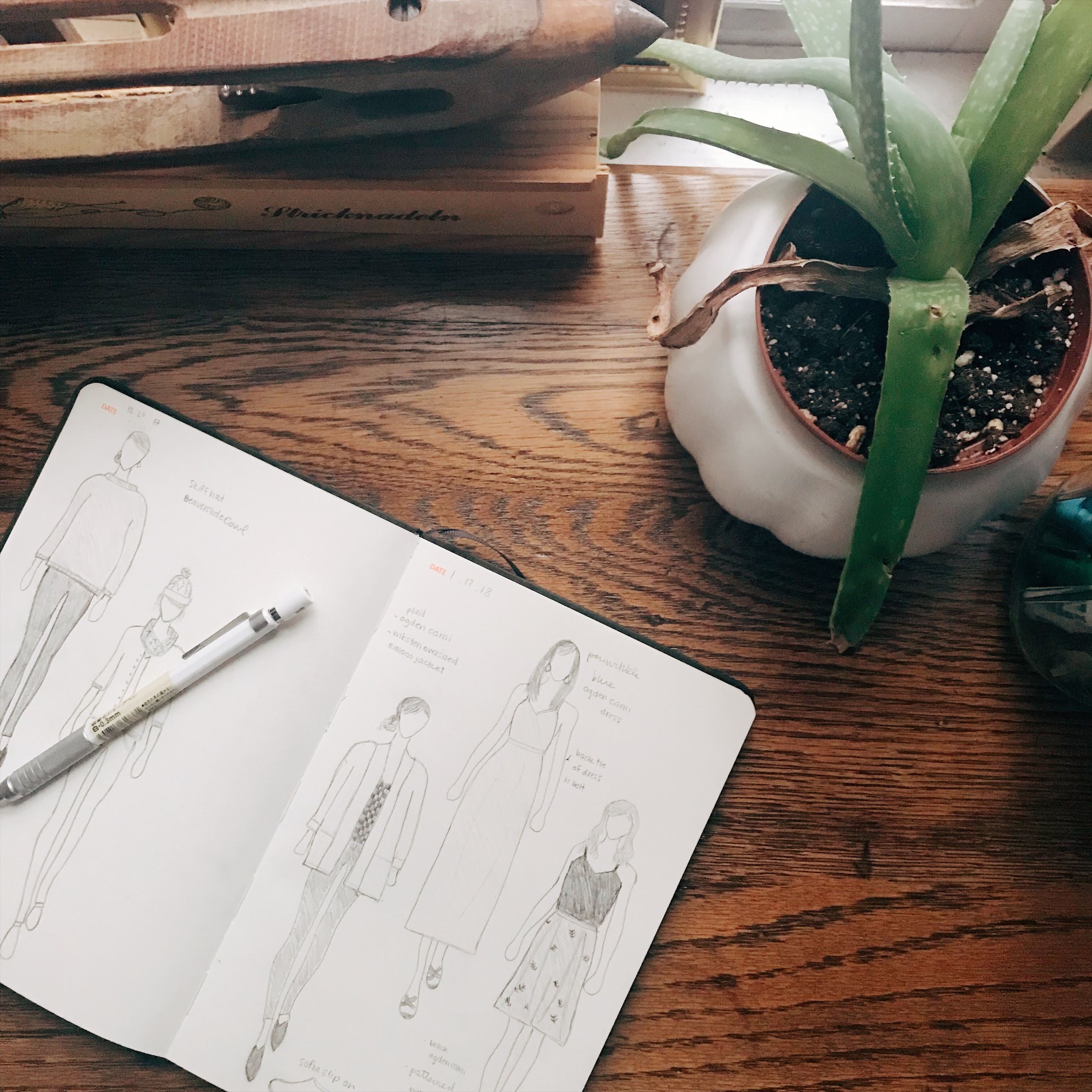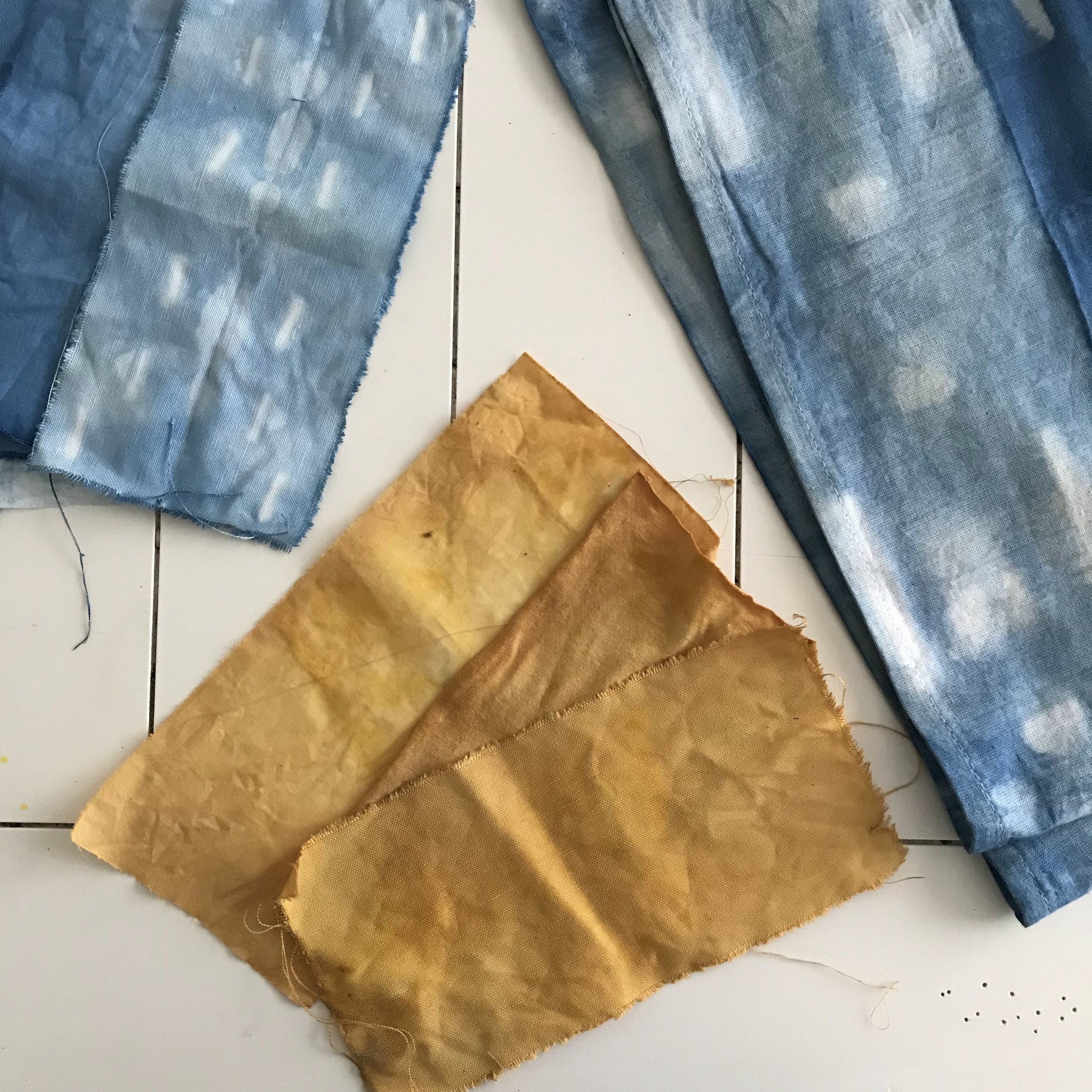
I've had quite a few thoughts, feelings, ideas, philosophical arguments, rants etc. swirling around in my head about slow fashion for about a year now that I feel it is time to finally get out on paper (or, HTML, as the case is today). I know there are others who will say ALL of the things I want to say much more eloquently than I, but I also know that I want to be a part of the conversation around sustainable and ethical clothing choices, and not wait for the right words or the perfect moment to share my thoughts with the world.
Slow fashion, for me, is the idea that there is a better way to live than supporting large corporations who make cheaply constructed and environmentally destructive clothing overseas, only to be sold for an outrageous profit margin to consumers in the US, who in turn will grow bored with these clothes or find a minor flaw in their construction after some use, and either donate them or throw them away. The issue of how our clothes are made has so many human rights and environmental implications, from the time that the fibers are produced, dyed, sewn, sold and eventually, passed on or disposed of. There are lots of resources out there for anyone interested in understanding these impacts, but a book I found helpful last year was Overdressed: The shockingly High Cost of Cheap Fashion.
For something that is so essential to our day to day living, as essential as the food we eat, the water we drink, the jobs we hold, how do we break out of the cycle of consumerism and a culture that demands new clothes every season, no matter the cost to ourselves or our planet?
There's so many ways, and I really struggle with articulating my feelings about slow fashion sometimes because the ways that we can work to make slow fashion a reality are so expansive. From high-end ethically grown and USA-based clothing companies all the way to sewing up the holes in a skirt you've owned for 15 years to make sure it sees 15 more, it can sometimes seem paralyzing to even know where to start or direct your energy.
In fact, while returning to a draft of this blog post, which I first sat down to write in January of this year, I discovered another, much shorter, blog post (which depending on how you feel about my verbosity, you may have preferred) in which I literally just wrote: "SEWING IS IMPORTANT. MENDING IS IMPORTANT. BUYING LOCAL FIBER IS IMPORTANT. SUPPORTING ETHICAL COMPANIES IS IMPORTANT. HOW DO I KNOW WHICH ONES TO DO THE MOST??" I could, and I know that there are organizations out there that do, focus on the impacts of fast fashion and trace their way back to the source, lobbying for fast fashion companies to make changes in their labor practices, environmental impacts, and sourcing, and I want advocates to keep pursuing these very important efforts, knowing that even with the maker movement having a huge comeback in the past 10 years, the majority of people in the world will continue to acquire most, if not all, of their clothing from a large retailer.

The most beautiful thing to me, and where I think I am in my journey of slow fashion, is as a maker, when slow fashion and the joy of sewing and knitting meet. Because of my interest in creating my own wardrobe by hand, wearable garments and accessories that I love, I think there was always going to be a natural interest and focus on being a part of the label of the "slow fashion movement" and to see others interested in creating a sustainable wardrobe chime in on the ethics and pleasure of a wardrobe that is at its core, slow, is a really exciting thing. I don't think that I am wrong for choosing to sew my spring and summer tops, or alter clothes I swapped at a local clothing exchange, rather than advocate for the reform of fast fashion companies, just as I don't think that anyone who focuses on buying sustainable retail are wrong for not wanting to learn to make their own clothes. It's all important. And I want to hear everyone's voice who care about the people who make our clothes and the impact of what we wear on our planet.